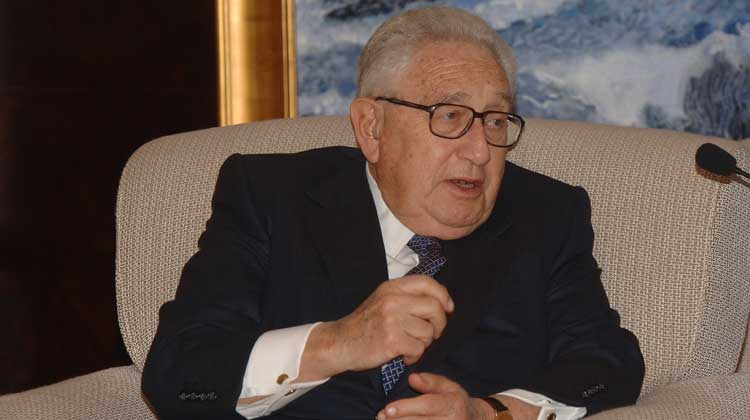From Claremont Review of Books Digital
This year marks the 25th anniversary of the publication of Henry Kissinger’s Diplomacy. With the exception of his superb three-volume memoirs of his service as national security adviser and secretary of state to Presidents Richard Nixon and Gerald Ford—White House Years (1979), Years of Upheaval (1982), and Years of Renewal (1999)—Diplomacy is Kissinger’s best book. It reflects his skills as a talented academic historian along with the knowledge, insights, and experience he gained as a foreign policy practitioner.

The book’s timing was propitious. In 1994, the world was transitioning from the bipolar struggle between the United States and the Soviet Union to something different. Like Sir Halford Mackinder’s post-World War I book, Democratic Ideals and Reality (1919), Kissinger’s Diplomacy was meant to serve as a geopolitical guide to Western statesmen in the aftermath of a great global struggle.
In the book, he envisions the post-Cold War world as a struggle for power among “several states of comparable strength,” with the new world order based on “some concept of equilibrium.” “In the post-Cold War world,” he predicts, “[t]he relative military power of the United States will gradually decline.” The lack of a single threat to U.S. predominance “will produce domestic pressure to shift resources from defense to other priorities.” Countries that “nestled” under the U.S. security blanket “will feel compelled to assume greater responsibility for their own security.” This will lead to the emergence of a new international system based on equilibrium, he believes, one that would resemble “the European state system of the eighteenth and nineteenth centuries.”
For Kissinger, the post-Cold War world includes six major powers: the U.S., China, Russia, Europe, Japan, and India. History, he opines, provides the best guide for statesmen to navigate the perilous times ahead. “[T]he rise and fall of previous world orders based on many states—from the Peace of Westphalia to our time—is the only experience on which one can draw in trying to understand the challenges facing contemporary statesmen.” He cautions, however, that “[t]he study of history offers no manual of instructions that can be applied automatically; history teaches by analogy, shedding light on the likely consequences of comparable situations.”
Continue reading here.